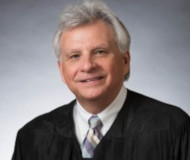12/26/2018
Tennesse Court Rejects Sovereign Citizen DUI DefenseSecond highest court in Tennessee rejects argument that drunk driving refusal charge violates religious liberty.

The Tennessee Court of Appeals on Friday rejected the creative arguments of a man who tried to get out of a drunk driving conviction by claiming his arrest violated his religious liberty. Christopher Bernard Simmons was picked up for driving under the influence of alcohol (DUI) on September 15, 2013, after he was involved in a car crash in Nashville. Simmons had refused to take any tests or answer any questions related to the incident. When asked if he understood not taking a breathalyzer or blood test would result in a refusal charge, Simmons repeated the same response.
"With all rights reserved and no, I do not understand," Simmons told the officer.
Since prosecutors had no physical evidence of intoxication, the DUI charge was dropped. The violation of the state's implied consent charge remained, so Simmons sent the trial court a notice demanding a bill of particulars and explaining how the state had committed a trespass against the Christopher Bernard Simmons Trust. Simmons filed multiple briefs and appeals, arguing the implied consent law violated the constitution as "an attempt of theft of property by government agency in violation of right to religion." The arguments kept the case tied up for nearly five years.
Simmons was found guilty on April 20, 2018, so he immediately launched an appeal.
"Any use [of] deceptive language by converting claimant's private self-propelled conveyance into a motor vehicle ([Mr. Simmons] is not in commerce) is a misrepresentation of a material fact, wherein the claimant is private and does not use the public highways/roads for private gains," Simmons argued to the Court of Appeals.
The three-judge panel did not bother fully responding to a number of the arguments Simmons brought up, including the trial court's violation of his copyright. The appellate judges pointed out that the refusal charge is civil, and something akin to a bill of particulars is only provided if the judge agrees that the plaintiff's pleading is vague and ambiguous. Either way, failure to provide a bill of particulars does not deprive the judge of jurisdiction in the case.
"Mr. Simmons's next issue appears to concern the state's alleged failure to provide a power of attorney 'through the IRS, FTC, or the SEC,'" Judge J. Steven Stafford wrote for the appellate panel. "Mr. Simmons's argument on this issue is largely nonsensical, but again appears to concern personal jurisdiction."
The court pointed out that the "trust" dodge was silly, as the state has jurisdiction over individuals who commit crimes within the state.
"We are likewise not persuaded by Mr. Simmons's contention that the implied consent law violates his religious liberty," Judge Stafford ruled. "Like much of the rest of his brief, Mr. Simmons's argument on this issue is difficult to understand. Importantly, Mr. Simmons cites no law concerning religious freedom or its application to an implied consent violation to support this argument."
The appellate court was unwilling to go further to make sense of the claims made by Simmons.
"We are cognizant of Mr. Simmons's self-represented status in this litigation," Judge Stafford concluded. "However, we must not shift the burden to the state to argue against an unintelligible and unsupported argument. Likewise, we have no burden to argue Mr. Simmons's case for him."
The court affirmed the refusal conviction and ordered Simmons to pay the costs of the appeal. A copy of the ruling is available in a 200k PDF file at the source link below.


